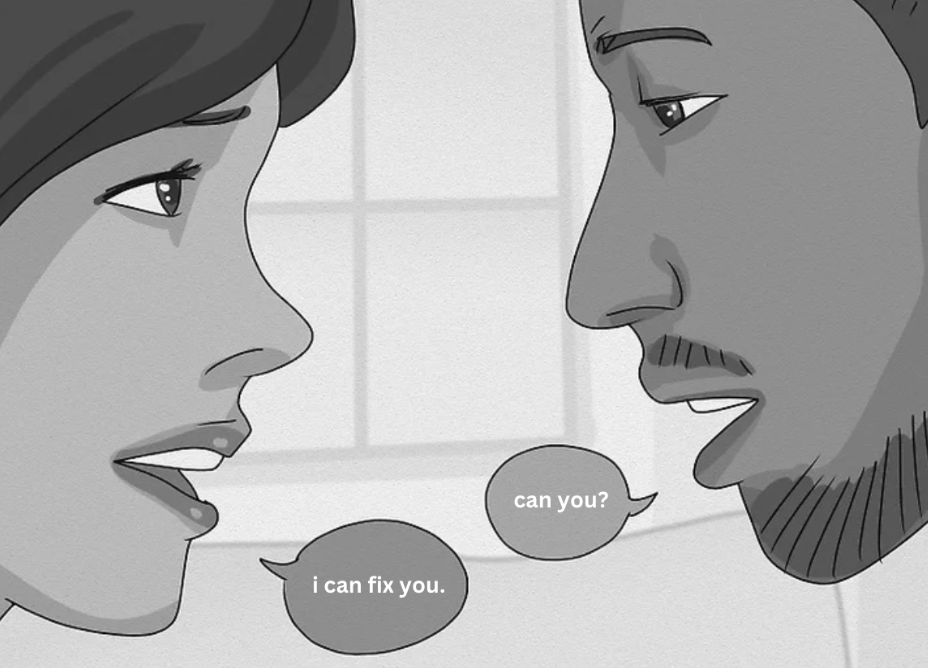The rise in popularity of true crime and serial killers in the media may seem like a thrilling, gritty form of entertainment, but we shouldn’t ignore how it facilitates the creepy obsessions with people who have committed vicious crimes such as abuse and murder. Some ways that we see this obsession is through the rise in serial killer television shows, such as “Monster”, about the Menendez brothers, and “Extremely Wicked, Shockingly Evil and Vile”, starring Zac Efron as Ted Bundy. While these shows and movies might make for an exhilarating, suspenseful way to spend your evening, they perpetuate vile ideologies in our culture. We need to stop glorifying and romanticizing serial killers because it wrongly empowers dangerous behavior and is ignorant toward victims and their families.
Firstly, the portrayal of serial killers in the media is problematic because it unnecessarily gives power and attention to them for partaking in inhuman behavior. The industry also tends to cast attractive actors to play serial killers. Writer Antonia Stassi mentioned in her article “Romanticising Serial Killers”, “it’s no secret that Hollywood [is] choosing well-established heartthrobs to play these roles; such as Zac Efron as Ted Bundy, Evan Peters as Jeffrey Dahmer . . . But there’s a dangerous psychology surrounding this – the more attractive we find people, the easier it is to forgive them.” As such, viewers might find it easier to trust the wrong type of attractive person, which could have a dire long term impact on individuals’ mindsets by making people more open to potentially violent ideas, and also overal encouraging “pretty privilege”. In addition, the media portrays the crimes of these killers in a positive light. For example, many idolize the infamous bandits Bonnie and Clyde as an iconic pair, regarding their lives as a love story rather than of crime. This additionally reinforces toxic relationship dynamics, which has already grown prevalent on social media in the past couple years. Gaslighting and emotional manipulation are among the behaviors slowly becoming normalized; an indifference to these warning signs could make it easier for individuals to become stuck in abusive scenarios. If involved with a serial killer, the relationship might culminate in torture and murder.
Serial killer culture is also insensitive and ignorant toward the actual victims of these gruesome crimes. Entertainment media tends to focus on immature aspects of the murders and disregard the impact that such tragedies have on victims. Rita Isbell, the sister of Jeffrey Dahmer victim Errol Lindsey wrote in an essay for the Insider commenting on a documentary featuring her brother’s death: “If I didn’t know any better, I would’ve thought it was me. Her hair was like mine, she had on the same clothes. That’s why it felt like reliving it all over again. It brought back all the emotions I was feeling back then.” The portrayals of victims in the media can be incredibly insensitive, especially when the focus of the media tends to be heavily on the killer. Additionally, Isbell’s surprise at seeing her character on the screen reveals how victims have little control over the public narrative of the situation and their own reputations. Victims like Isbell don’t deserve to have their trauma displayed on the big screen for audiences to deliberate over. Rather, they deserve justice for their loved ones in legal courts.
Some might argue that the portrayal of serial killers in the media is solely for informational purposes. While some adaptations may intend to educate, there is a well established line between being informative and unethical. True crime dramas and documentaries are two completely different things: dramas are for entertainment, while documentaries focus on facts. When entertainment becomes more exploitative, it becomes both uncomfortable to watch and immoral to create. True crime dramas are at the center of the issue since they use tragic and violent stories for the purpose of viewer enjoyment.
It is also important to recognize that murderers face childhood trauma too, which causes them to commit the crimes that they do. For example, the Menendez brothers, known for killing their parents in 1989, were later found out to have been facing regular sexual abuse from their parents; this was reportedly their primary motive for committing the murder. Some people argue that this is a reason for serial killers to have their stories heard, but this again turns into exploitation, because the media is still making profit from traumatic stories.
To get rid of the harmful ideologies serial killer culture promotes, it is necessary to draw a firm line between entertainment and exploitation. When gruesome murder stories turn into Friday night flicks, it is time to end the needless display of trauma and violence, as well as stop encouraging the fascination with serial killers in our culture.












